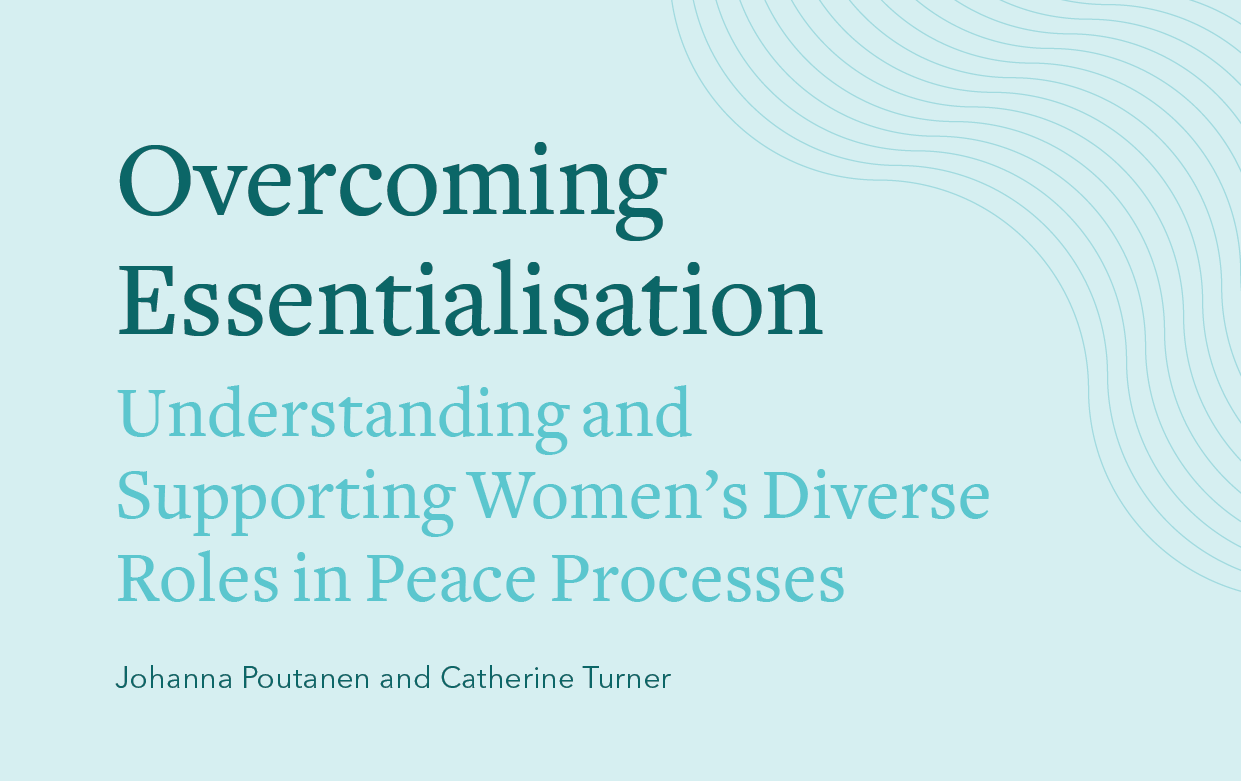Overcoming Essentialisation: Understanding and Supporting Women’s Diverse Roles in Peace Processes
Over the past few years, increasing attention has been directed to defining and promoting women’s ‘meaningful participation’ in peace processes. But as we strive for clarity on what meaningful means, we may easily overlook all that participation entails.

In doing so, we risk perpetuating simplistic understandings of women as feminist peacemakers, overlooking other aspects of their identities and potentially weakening their space and ability to influence peace process outcomes.
Drawing on a multi-stakeholder workshop and individual interviews with political and civil society leaders from different contexts, this briefing note seeks to provide greater conceptual clarity on the different roles that women play in formal peace negotiations and the factors that shape their role formation.
There are two prominent expectations directed to women taking part in formal peace processes. First, women often experience pressure to speak on so-called ‘women’s issues’ and limit their contribution to gender expertise. Second, female delegates are commonly faced with the competing demands of thematic expertise on the one hand, with constituency representation on the other. Such double bind is rarely experienced by their male counterparts.
These externally imposed assumptions undermine women’s political identities, reduce them to essentialized stereotypes and curtail their space to contribute. Women’s participation is likely to be most effective where there is strong alignment between their own role conception and the expectations that others have of their contribution. Conversely, where alignment is poor, women often struggle to exert meaningful influence on the process.
Importantly, women cannot be treated as a single and unitary category when it comes to their participation in formal peace processes. To address this, we propose a matrix for analysing role formation by paying attention to four key factors that frame a participant’s role formation in the context of formal peace negotiations: selection process, form of participation, source of authority and purpose of participation.
To provide a more differentiated understanding of women’s participation, we need to consider what support is provided to women in their different roles. With greater conceptual clarity, national and international partners to any mediation process can help to dispel generalisations and move us beyond essentialist understandings of women’s agency.
This briefing note was researched and written by Johanna Poutanen, Head of Women in Peacemaking, CMI and Catherine Turner, Associate Professor in Law, Institute of Advanced Study at Durham University.
Download the report here: Overcoming Essentialisation: Understanding and Supporting Women’s Diverse Roles in Peace Processes